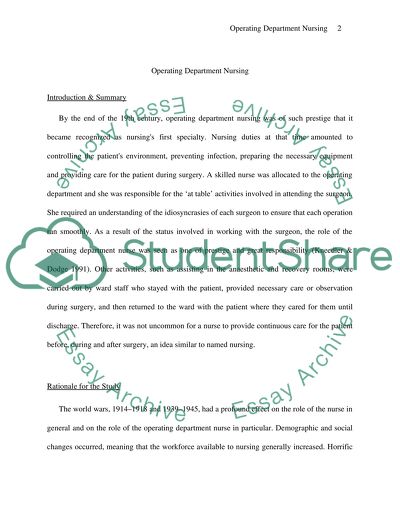Cite this document
(“Operating Department Nursing Essay Example | Topics and Well Written Essays - 1250 words”, n.d.)
Operating Department Nursing Essay Example | Topics and Well Written Essays - 1250 words. Retrieved from https://studentshare.org/health-sciences-medicine/1524016-operating-department-nursing
Operating Department Nursing Essay Example | Topics and Well Written Essays - 1250 words. Retrieved from https://studentshare.org/health-sciences-medicine/1524016-operating-department-nursing
(Operating Department Nursing Essay Example | Topics and Well Written Essays - 1250 Words)
Operating Department Nursing Essay Example | Topics and Well Written Essays - 1250 Words. https://studentshare.org/health-sciences-medicine/1524016-operating-department-nursing.
Operating Department Nursing Essay Example | Topics and Well Written Essays - 1250 Words. https://studentshare.org/health-sciences-medicine/1524016-operating-department-nursing.
“Operating Department Nursing Essay Example | Topics and Well Written Essays - 1250 Words”, n.d. https://studentshare.org/health-sciences-medicine/1524016-operating-department-nursing.


